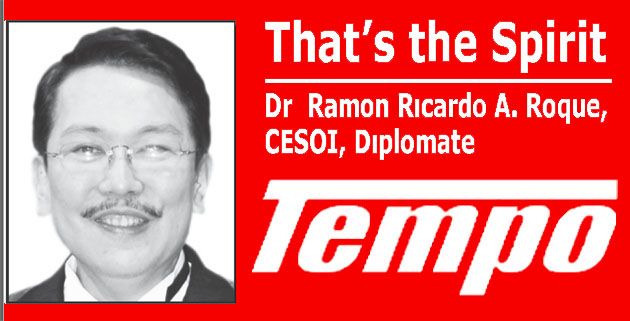By Dr. Ramon Ricardo A. Roque, CESOI, Diplomate
ACCORDING to the 1987 Philippine Constitution, the primary duty of the government is to serve and protect the Filipino people. The powers of the government to enact and implement laws should have no end or objective other than serving and protecting the people.
The Tax Reform for Acceleration and Inclusion (TRAIN) Law is no exception. It should essentially be a means for the government to fulfill the ends of serving and protecting the Filipino people.
Upon its implementation starting January 1, 2018, the TRAIN Law provided for higher take home pay for millions of Filipinos as it provides for exemption from the payment of income tax for those earning below P250,000 per annum and lower income tax rate for those earning more (except those earning more than R8 million per annum as they are subject to income tax rate higher than the one prescribed in the old tax laws).
As the Law is not just about lower income tax rates but also about higher rates for other taxes, higher taxes for other commodities including petroleum products were among the other effects of the new taxation scheme.
The TRAIN Law does not intend to negate the positive effects of lower income tax rates and income tax exemption, particularly for those at the lower portion of the economic strata.
As specific means of serving and protecting the people, the TRAIN Law provides for mechanisms that will lessen the impact of higher taxes for commodities.
The beneficiaries of the cash transfer program of the government are supposed to get a P200 monthly increase in subsidy during the first year and P300 in the second and third years of the Law’s implementation. The number of beneficiaries is also supposed to increase from just more than two million Filipinos (households) to 10 million.
Public utility vehicles (PUVs) are not supposed to feel the effect of excise tax on diesel fuel as the TRAIN Law provides that they are entitled to vouchers that they can redeem from gasoline stations with value equivalent to the excise tax imposed on the said product. This scheme effectively limits the “burden” of paying higher prices for diesel fuel to the well-off Filipinos driving sports utility vehicles (SUVs).
As an additional protection to those earning minimum wage and those unemployed, the TRAIN Law also provides for a ten (10) percent discount on transport fares and on the purchase of NFA rice.
With the increasing prices of petroleum products in the world market, talks about suspending the imposition of excise tax on said products under the TRAIN Law is being demanded.
The suspension of the imposition of excise tax on petroleum products is not the solution to the problem of worse-off condition of Filipinos because of the TRAIN Law. The solution needed is the full implementation of the Law as the government has not really delivered on the protection that the Law prescribes.
The government should first make the law work.


